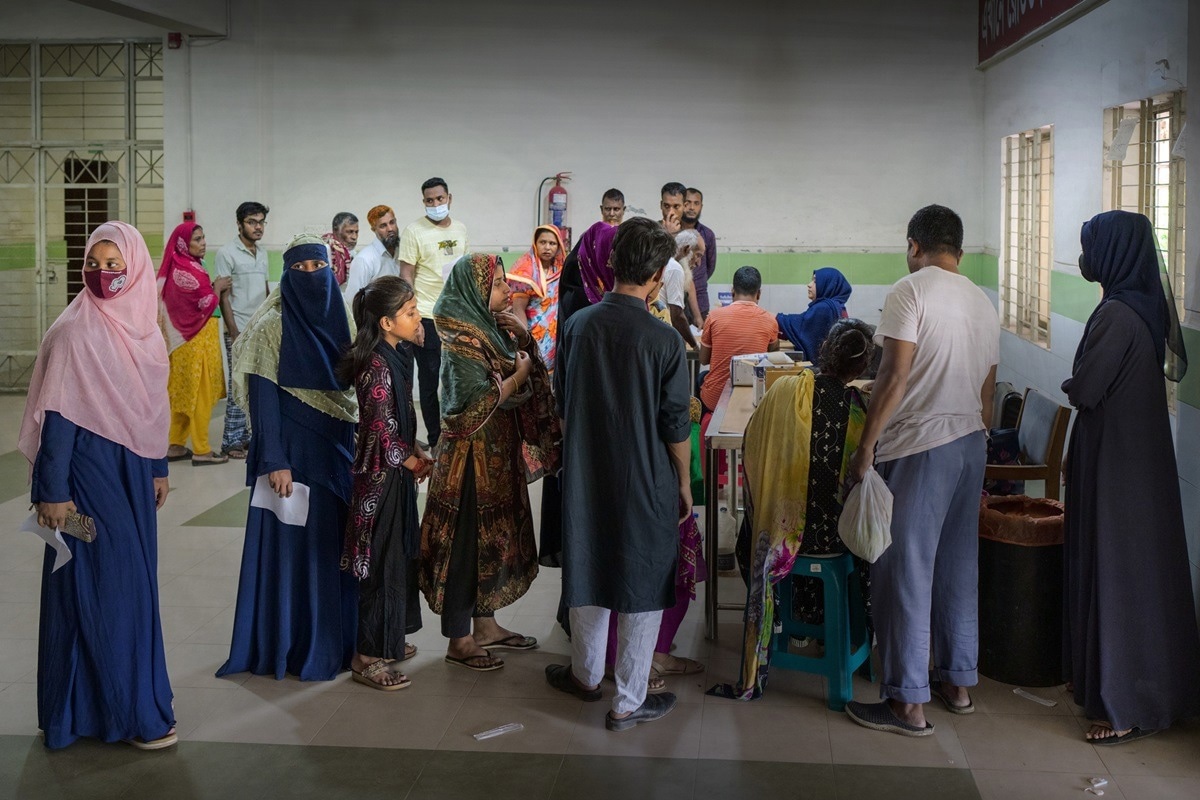A new vaccine for dengue received prequalification from the World Health Organization (WHO) on 10 May 2024. TAK-003 is the second dengue vaccine to be prequalified by WHO. Developed by Takeda, it is a live-attenuated vaccine containing weakened versions of the four serotypes of the virus that cause dengue.
 Patients wait to be tested for dengue at Mugda Hospital in Dhaka, Bangladesh on 20 September 2023. Image Credit: WHO / Fabeha Monir
Patients wait to be tested for dengue at Mugda Hospital in Dhaka, Bangladesh on 20 September 2023. Image Credit: WHO / Fabeha Monir
WHO recommends the use of TAK-003 in children aged 6–16 years in settings with high dengue burden and transmission intensity. The vaccine should be administered in a 2-dose schedule with a 3-month interval between doses.
The prequalification of TAK-003 is an important step in the expansion of global access to dengue vaccines, as it is now eligible for procurement by UN agencies including UNICEF and PAHO. With only two dengue vaccines to date prequalified, we look forward to more vaccine developers coming forward for assessment, so that we can ensure vaccines reach all communities who need it.”
Dr Rogerio Gaspar, WHO Director for Regulation and Prequalification
The WHO prequalification list also includes CYD-TDV vaccine against dengue developed by Sanofi Pasteur.
Dengue is a vector-borne disease transmitted by the bite of an infected mosquito. Severe dengue is a potentially lethal complication which can develop from dengue infections.
It is estimated that there are over 100-400 million cases of dengue worldwide each year and 3.8 billion people living in dengue endemic countries, most of which are in Asia, Africa, and the Americas. The largest number of dengue cases reported was in 2023 with the WHO Region of the Americas reporting 4.5 million cases and 2300 deaths. Dengue cases are likely to increase and expand geographically due to climate change and urbanization.